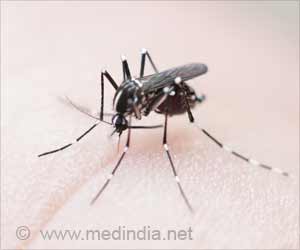By using global climatological data and vegetation indices from Costa Rica, a team of researchers have developed a new model to predict Dengue outbreaks in the region.
By using global climatological data and vegetation indices from Costa Rica, a team of researchers have developed a new model to predict Dengue outbreaks in the region.
The interdisciplinary team is from the University of Miami (UM) and the University of Costa Rica.Dengue Fever (DF) and Dengue Hemorrhagic Fever (DHF) are the most important vector-borne viral diseases in the World, and are prevalent in the Tropics. The new model can predict Dengue Fever epidemics with 83 percent accuracy, up to 40 weeks in advance of an outbreak and provide information on the magnitude of future epidemics.
It can also be expanded to include the broader region of Latin America and the Caribbean, where incidence and spread of the disease has increased dramatically over the past 25 years.
Douglas O. Fuller, principal investigator of this project, said that it was possible to potentially develop an early warning system to prevent and mitigate the spread of the disease by using the model.
"Such a tool will provide sufficient time for public health authorities to mobilize resources to step up vector control measures, alert at-risk populations to impending conditions and help health professionals plan for increased case loads," said Fuller.
Most of the world's population infected by Dengue is located in tropical and subtropical areas of the globe, where the weather is dominated by rainfall.
Advertisement
"We were surprised that sea-surface temperature variations in the Pacific related to El Nino can be linked to a debilitating disease. Now we see more clearly that global climate oscillations such as El Nino are important drivers of disease as well," said Fuller.
Advertisement
The findings of the study have been published earlier this year in the Institute of Physics journal Environmental Research Letters.
Source-ANI
ARU













